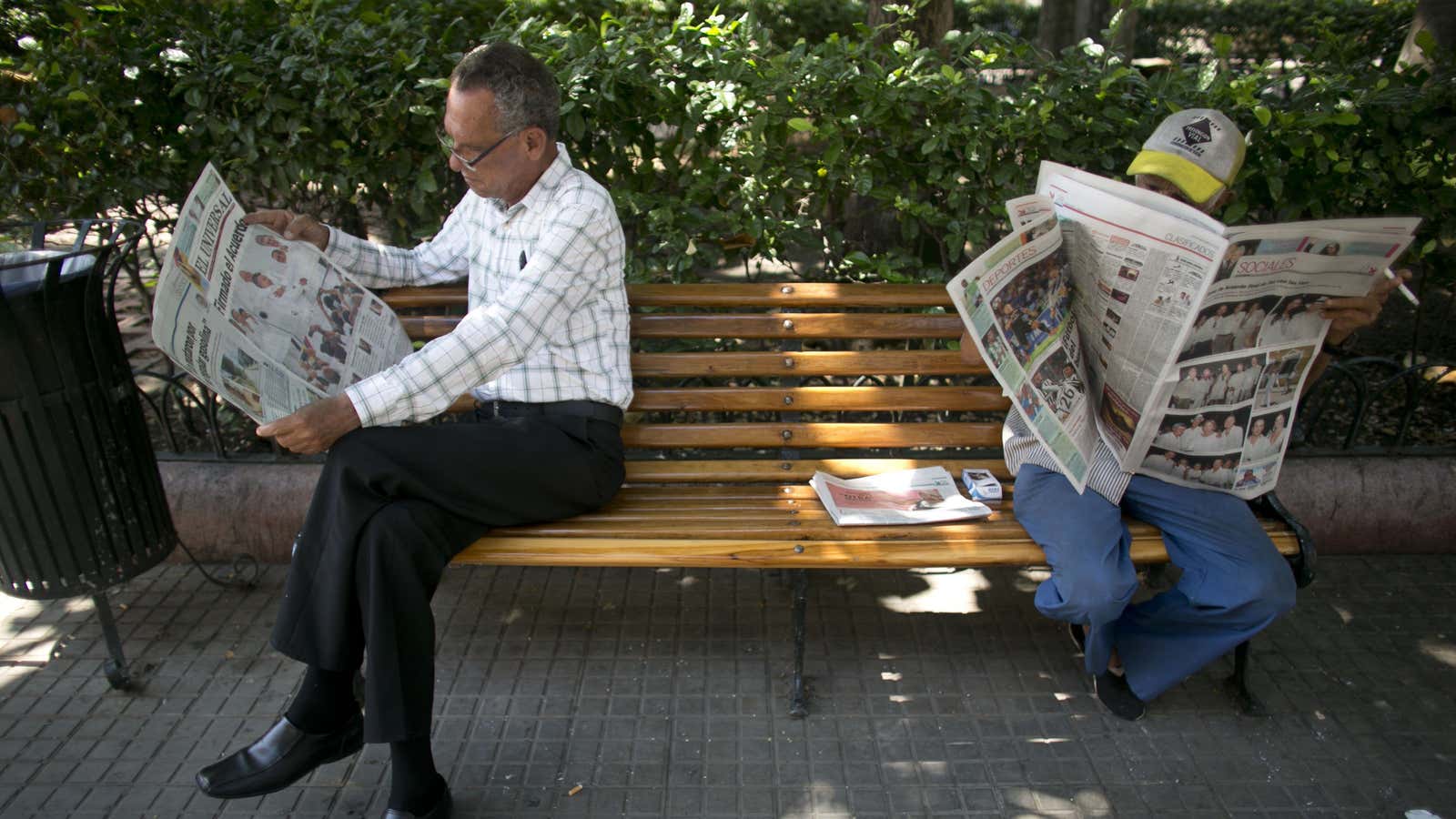Cali, Colombia’s third biggest city, recently banned all employees from using titles such as “doctor”, “sir” and “don”, starting with its mayor, Maurice Armitage.
“From now on, I’m not the mayor, I’m Maurice,” Armitage said during a public address on Oct 7. “You can call me that without any worry.”
The new policy is a linguistic effort to address the wide gap between rich and poor (link in Spanish) in the country. But that conversation would likely not be taking place had inequality not already fallen considerably from even higher levels two decades ago.
As millions of previously marginalized Latin Americans have seen their fortunes improve, they are playing a bigger role in society (Spanish)—as consumers, voters, and citizens. In doing so, they are challenging lingering traditions from more unequal times.
The economic transformation has been remarkable. Riding a commodity boom fueled by Chinese demand in the 2000s, Latin America posted the biggest drop (pdf, pg. 7) in inequality among all the world’s regions during that decade, according to the Commitment to Equity Institute. From 2004 to 2014, the share of the poor nearly shrunk by half to 23% of the region’s population, data from the World Bank’s LAC Equity Lab shows. Meanwhile, the reverse happened to the middle class, which accounted for 35% of the population in 2014 compared to a little over 20% ten years earlier.
While the pace of those economic gains has slowed down more recently, the pace of social change is still going strong. The “doctor” ban is a literal example of that.
Latin Americans have been obsessed with titles since Spanish monarchs were handing out marquisates and countdoms in their colonies. Professional titles such as licenciado—or college graduate—later came to denote the same kind of social hierarchy. But much of the time, the recipient of the reverential term hasn’t even earned a degree, a phenomenon Colombians have dubbed “doctoritis” (Spanish).
Mexican comedian Roberto Gómez Bolaños was already poking fun at this status obsession decades ago on his TV show Chespirito, which featured two characters who went through the routine below every time they met.
-Hey Lucas.
-Tell me, licenciado?
–Licenciando.
-Thank you, thank you so much!
Armitage didn’t say what the consequences would be if city employees accidentally (or intentionally) disobey the ban. But he urged them to stop using that kind of language even beyond his offices. Instead, he wants people to call each other by their first name. He’s hoping that the initiative will serve to knock the wealthy from their cultural pedestal, and pull up those who are effectively treated as second-class citizens by virtue of not having a title.
In a sign of doctoritis’s deep hold on Colombians, he felt the need to reinforce his point with less-than-subtle skits. In one of them, a woman wearing a business suit and holding a briefcase is carried by municipal officials and served by la de los tintos, or the one who gets the coffees. The server later says: “I’m not la de los tintos… my name is Hortensia.”
Armitage’s message has resonated in Colombia. Two of the country’s most prominent newspapers praised the effort’s lofty goals in editorials. Others welcomed its more immediate effects, including one public servant, who tweeted that city employees were gamely calling each other doctor.
“Yes sir! That sounded like a hospital already,” reads her tweet.
